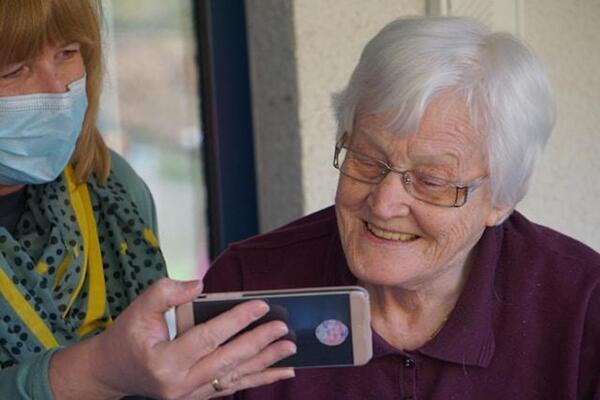
5 Tips to Help You Care for a Sick or Elderly Loved One
No amount of childcare experience can truly prepare you for the challenges of caring for an aging loved one. While they might require assistance now, they were once lively and independent, able to drive, dress themselves, cook, and communicate effortlessly.
This situation can be particularly challenging when it involves caring for an elderly parent. There was a time when they dressed, fed, and carried you, and now they must follow guidance from their own child. Here are five tips to help you care for a sick or elderly loved one.
Enhance Their Physical Well-Being
Encourage the elderly person you care for at home to have regular health check-ups to ensure everything is functioning well. Regularly check for any pain or changes in their health and note these for proper treatment.
These routine diagnostics may cause some discomfort initially, but they can quickly identify any potential illnesses or diseases. This proactive approach can significantly improve the long-term health of your elderly loved one by preventing serious illnesses before they develop.
Make Some Changes
Older adults often tire quickly and can find it stressful to locate their belongings. Therefore, ensure they have everything they need within easy reach. For instance, keep their medications on a nearby table with a chart indicating which ones to take and when.
Place non-slip mats in the bathrooms to prevent falls, open windows to keep the house light and airy, and use gloves latex when cleaning to prevent infections. If you live in a multi-story house, consider moving their room to the ground floor. These are just a few adjustments you can make to help care for them effectively.
Focus On Small Victories
Caregiving is difficult, but it's important to celebrate the small wins. Maybe they ate a piece of fruit after days of eating very little, or they have stopped being combative and are now sharing stories from their youth. What matters is taking a moment to add these positive experiences to your memories.
If your loved one can make their own decisions, allow them to do so. If they choose not to continue a treatment, it might mean transitioning to hospice for end-of-life care. While this is a tough decision, many hospice organizations provide supportive care for patients and their families.
If your loved one cannot make decisions, consider what they would want at the end of their life and honor those wishes as much as possible. Discuss your loved one's preferences to ensure everyone is aligned if you are caregiving with others.
Provide Them with Time
As our family members grow older (be it parents, grandparents, or others) they need our time and presence. Even with a busy schedule, check in on them regularly. Share a cup of tea in the morning, read a book together in the evening, or spend just 15 minutes at night asking about their day. Your time will mean the world to them and demonstrate your care and affection.
Encourage them to Attend Routine Medical Examinations
Should an elderly person have health conditions, they will need to regularly attend medical checkups and take prescribed medications. However, it's common for seniors to miss doctor appointments, either because they forget or are unwilling to go.
In such instances, support them and emphasize the importance of their health. If they cannot drive to the hospital, you can either drive them yourself or hire a driver. Organize their medications so they can easily locate and take them. Additionally, ensure regular check-ins to verify they are taking their medications on schedule.
In such instances, support them and emphasize the importance of their health. If they cannot drive to the hospital, you can either drive them yourself or hire a driver. Organize their medications so they can easily locate and take them. Additionally, ensure regular check-ins to verify they are taking their medications on schedule.
Endnote
For many elderly individuals, aging can be a joyful conclusion, a difficult period, or a blend of both, depending on the support from family and those around them. It is the essential duty of the younger generation to empathize with and support them. Everyone will eventually experience old age, along with potential physical and mental challenges. Recognize this as a natural part of life, and understand that your elderly loved ones need your care just as they cared for you when you were a child.